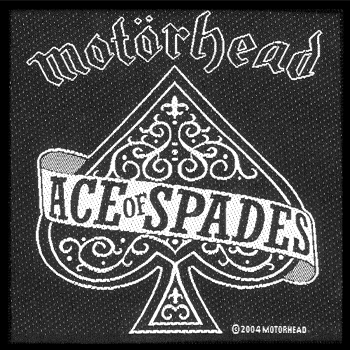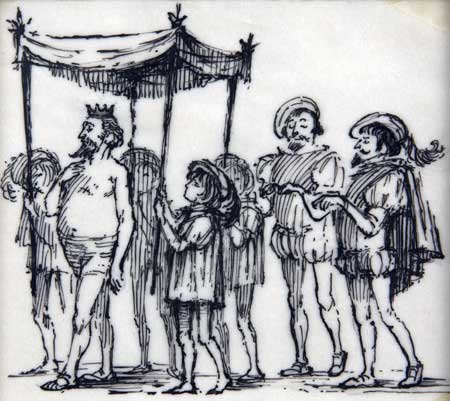In the last couple of weeks the government’s pistons have started pumping. After a year’s worth of blue-boiler-suited (non-unionised) engineers making sure the sleek machine is primed and fuelled and oiled and ready for action, the engine has roared into life and is beginning to blow out a cloud of smoke in preparation for a screaming burnout. As it proceeds, the party has dealt its Labour opposition a decent hand of cards; you could say they’ve built a house of them, which the mighty engine is in danger of knocking down. After campaigning on a platform of returning integrity and effectiveness to the Beehive, the public are beginning to get an inkling that the emperor may lack a couple of vital articles of clothing.
Returning to cards: the strongest card is the decision to mine the conservation estate, announced last year. Classic crony capitalism is shaping up to be the trump suit. The other cards: Hide‘s junket timed to coincide with a wedding; Harawira‘s trivial but more spectacularly mismanaged junket; Key‘s and McCully‘s mining shares; revelations that Brownlee lied about being lobbied by mining interests which would stand to benefit from his actions as a minister; attacks against Radio NZ which benefit Joyce‘s former business partners; attacks against ACC which benefit the insurance industry to which the party has well-known ties; and ministers Heatley, Brownlee and Groser who were pinged pinching from the public purse for their own private pleasure.
Mining the conservation estate is the keystone of all this, the central peg on which the whole thing hangs — because the allegations cannot be denied outright, only explained. Particularly in the cases of Key and McCully’s shares, the value of the conflict of interest is irrelevant. It probably should be relevant, but it isn’t really: either there is a conflict of interest, or there isn’t. While there would be (much) more hay to be made from a large shareholding, that isn’t necessary to plant the seed of doubt in the rich loam of the electorate’s and the media establishment’s collective consciousness.
Likewise the other issues: trivial, but they ring true and all riff on the same themes. Hide’s transgression was much more significant in actual material terms than was Harawira’s, but Harawira was punished much more harshly because he failed to recognise the symbolic matter in play: both required abject, cringing apologies. Key’s “sloppy” uranium shares, which he was “too busy running the country” to recall owning is reminiscent of John McCain‘s failure to remember how many houses he owned, for which he was rightly crucified by a country staring down the barrel of an economic crisis which would cost many people their only home. The smiling visages of the three ministers on the front page of the Dominion Post: the Minister of Economic Development who can’t be trusted with a credit card; the Fisheries Minister who likes to splash out on feeds of kaimoana for his mates and party hangers-on; the Minister for Climate Change Negotiations wining and dining the former National minister who was an integral part of the Copenhagen negotiation, and now heads the environmental branch of the OECD apparatus. And so on. These are symbolic issues, not matters of real actual wrongdoing. But the government can’t just dismiss them outright, it needs to argue the merits, and by the time you have to argue the merits on this kind of thing, you’ve probably already lost the symbolic battle. This sort of behaviour passes the public’s sniff-test about how they think about the National Muldoon gave us. And it fits the narrative of the modern Key/Brash-era Nats as wheeler-dealers, well-heeled fat-cats with a finger in every pie, feathering the nest for their secretive plutocrat mates. It brings to mind an iceberg, with the tiny, trivial transgressions peeking above a glassy surface which hides the monstrous mass below.
The job of the opposition is to tie all this into a coherent story which people can understand and feel in their guts: a myth that trips off the tongue at the pub or in the line at the football, in the front seat of a taxi, sitting on the bus, standing around the water-cooler or in the smoko room — in as many variations as there are poets of the NZ electorate.
This post cannot end without a mention of the good work the folks at The Standard — particularly Eddie — have done toward assembling the blocks for this narrative pyramid. I am often critical of them, and their tendency toward partisan hackery frustrates me, but they do a lot of good work, and it shouldn’t go unrecognised. They’ve covered all the main aspects listed here, but they can only go part of the way: now is for the opposition parties and their allies to lurch into action. All the cards have not yet been dealt; the ace of spades may yet be seen. Although the raw material is all there, it won’t be easy writing this story — just ask Lockwood Smith, who only by dogged repetition and worrying away at the Taito Phillip Field bone managed to raise the electorate and media’s awareness of that actual and manifest case of political corruption. But this is the opposition’s job, and if they can untangle the metaphors and lay them out for people in simple, appealing, resonant terms, they will gain some traction. Then perhaps, they too will begin to belch smoke and fire, and roar down the road to victory.
L






I would imagine the end-game is a simple one – hand over a billion dollars a year to a certain few by cutting the top rate of tax. By the end of the second term that’s $4 billion, and in the second term when they propose to part-privatise $4 billion worth of state owned assets – will we remember that the buyers did not use money they had when National came to power in 2008.
SPC, right. That’s the ace of spades.
L
Surely for there to be a conflict of interest there has got to be an interest. McCully’s shares are valued at $31. The accusation is a grasp at a straw. Even Key’s rather more valuable shares fall into the same category.
Max, as I said — perhaps there should be, but in reality there needn’t be. It’s symbolic. The headline is “Minister in conflict of interest scandal”. Once the minister has to stand up, admit that, technically, yes, there’s a conflict but it’s trivial really — they’ve already lost. The media and opinion leaders are taking it seriously, the public are paying attention, and most importantly, it builds on the narrative.
L
Could you elaborate on the reference to Muldoon? Don’t quite follow.
StephenR, I’m referring to Muldoon’s rather autocratic, unitary executive, father-knows-best, “I’ll do what I need to do” style of leadership.
L
The usual Muldoon stuff then! :-D
Damn Lew – that post was a thing of beauty.
Thanks r0b. I spend half my waking life up to my eyeballs in journalistic doggerel. It’s nice to be able to make some sense of it.
L
I disagree for two reasons:
1. mining will come down to a case by case issue. That’s not necessarily going to favour Labour. Coal/West Coast etc.
Also I’m not sure that people are all that anti-mining.
2. The Nats are advocting mining because they believe it will benefit NZ, not because they will benefit individually from their investments. the corruption theme is a red herring. better to engage in their adctual argument then spend time tliting at windmills.
Neil,
The main reason mining is the keystone is because it brought several other examples of (what appears to be) crony capitalism into public view. In addition, it’s a strong issue for the opposition because it’s one they can fight from the moral high ground of principle.
Mining will only become a case-by-case topic if the opposition fails to make it a point of principle. Schedule 4 is not just any old land, it’s the most precious parts. As I argued in this post, the appeal needs to be to New Zealanders’ identity; their sense of connectedness to these tÄonga, wild places as an expression of who we are. If Brownlee gets to argue the merits of certain tracts of land versus certain others, the game will be up because the argument will be about when and how much and for what payoff when, in order to be winnable, it needs to be about different and irreconcilable forms of value. When dealing with people who see everything in dollar terms, for whom everything is for sale, you can’t ever set a high enough price.
The economic left has historically failed to understand this; it’s why I haven’t (ever) had a proper answer from any of my usual hecklers on the question of how much economic development losing reo MÄori would have been worth. They can’t answer it because they know instinctively the two things can’t be satisfactorily reduced to like value.
I agree with your second point, and that’s worth addressing at the campaign level as well. But there needn’t be a substantial opportunity cost; both campaigns should run in parallel. But National controls the terms of the debate you mention (about being good for New Zealand — it’s part of their overarching “catch up with Australia” thing) and there’s little to be gained there for the opposition. Better to focus on the debate you can control, and guide it in directions the government doesn’t want to be taken.
L
thanks for the post dude, here’s to New Zealand’s future;
here’s to New Zealand,
here is to your blog which gives us info to look at,
from peterquixote